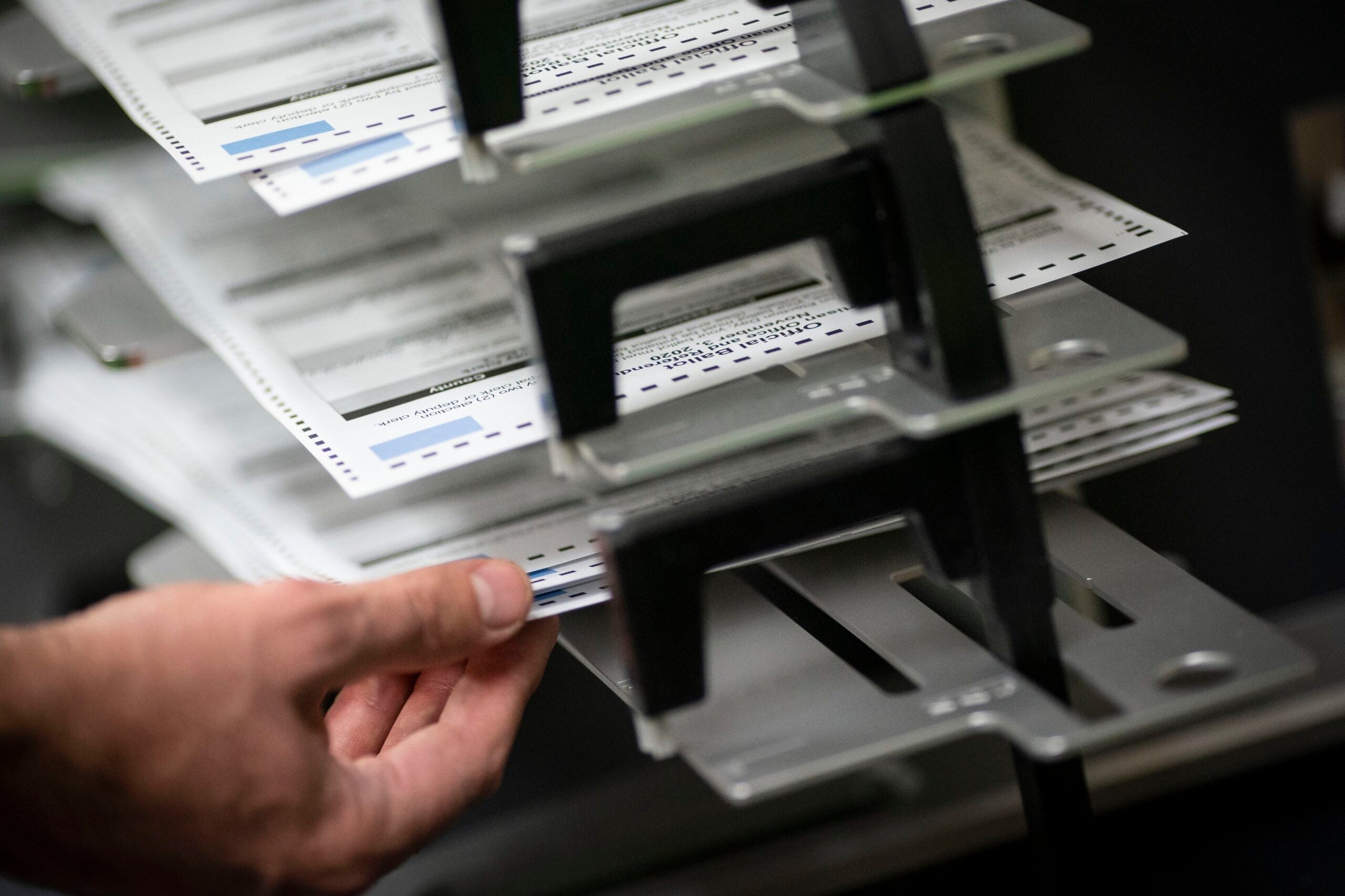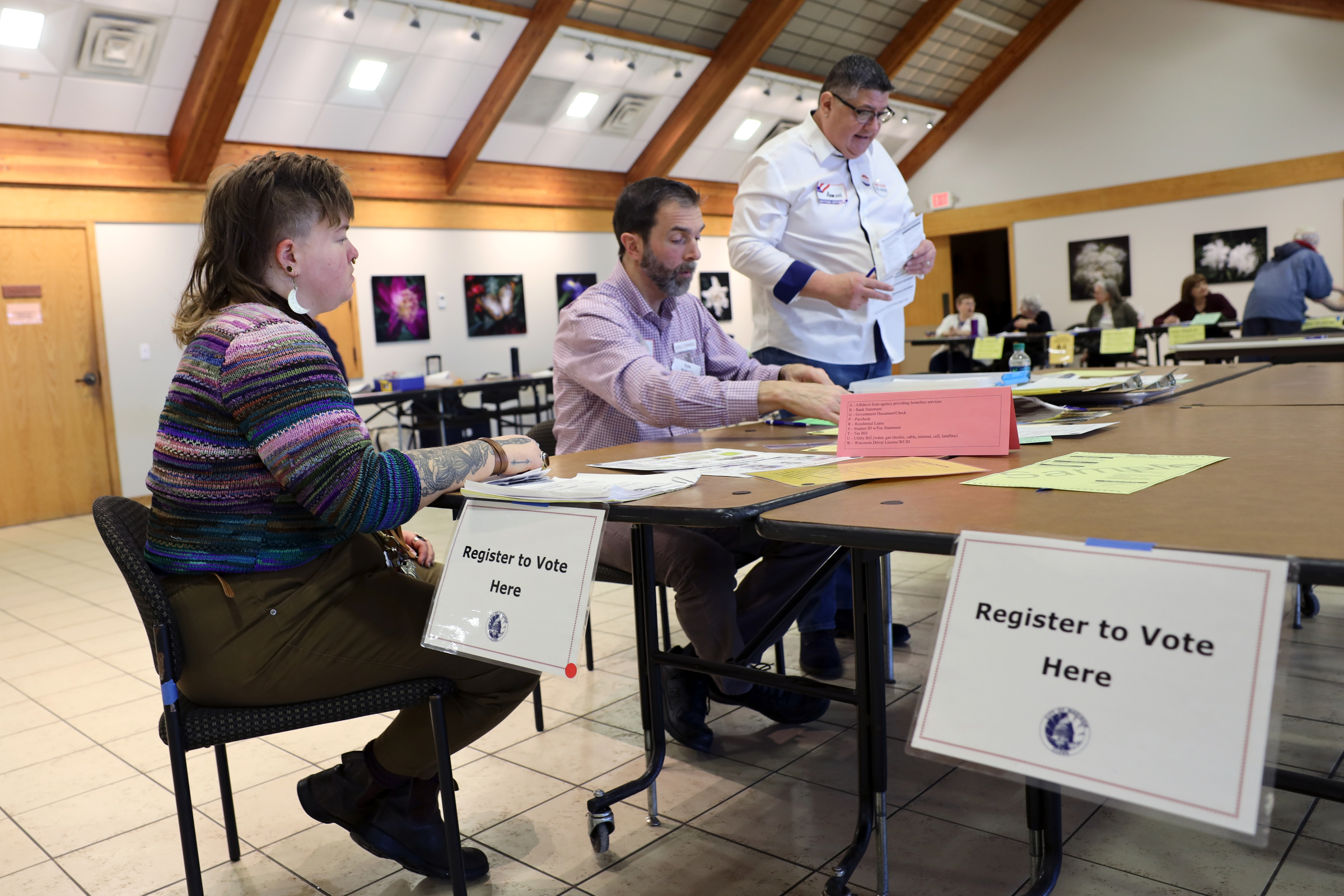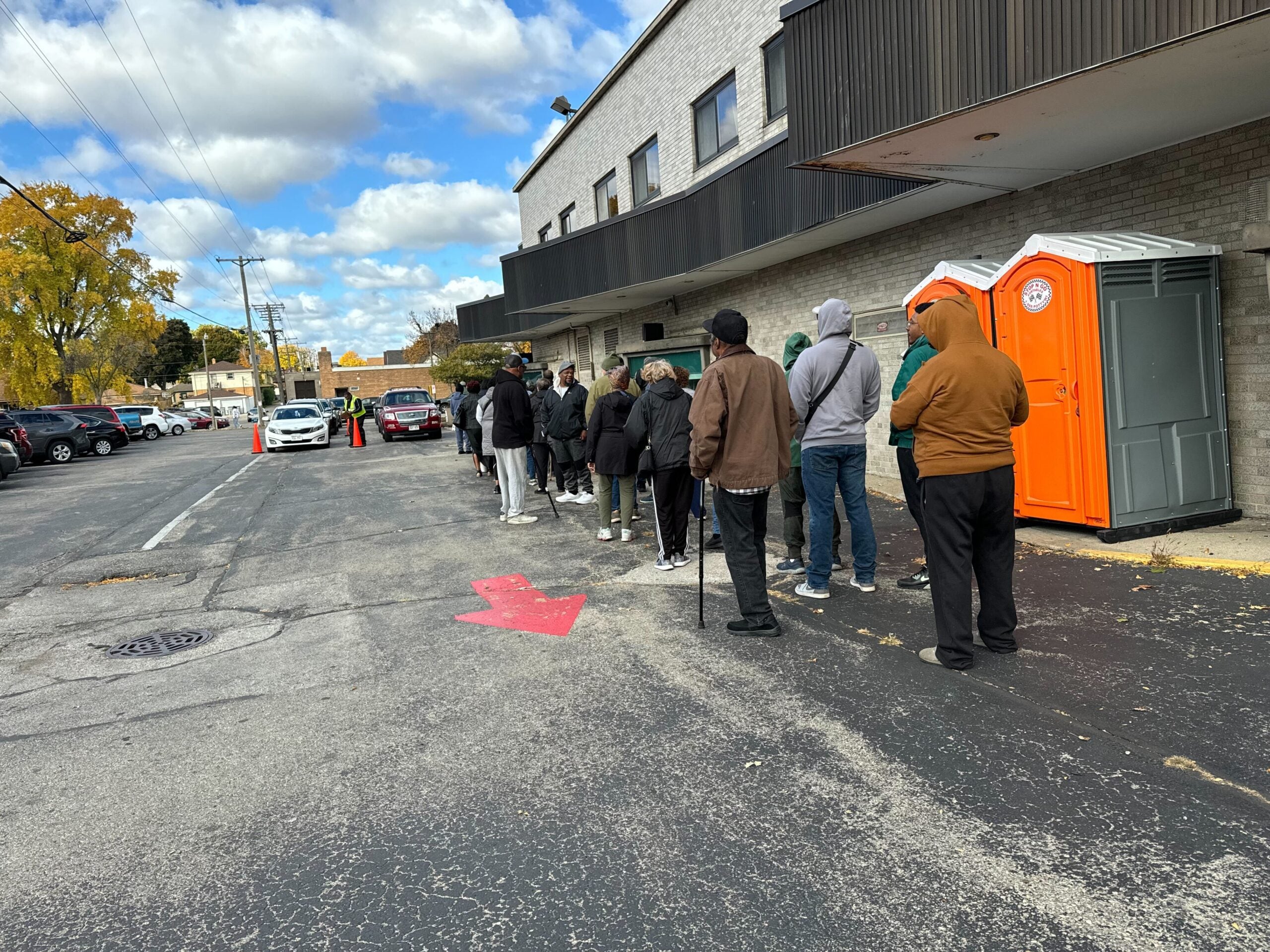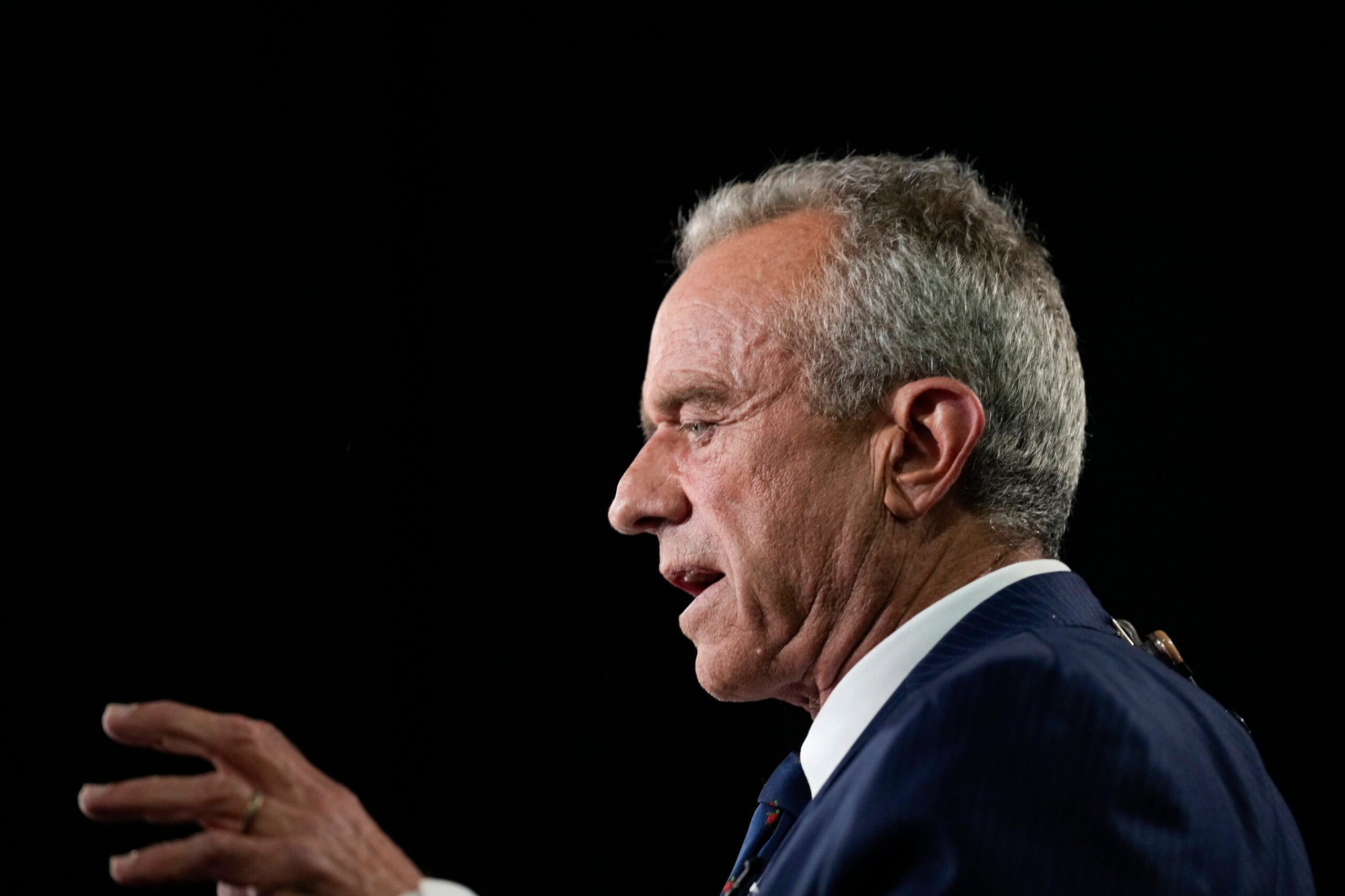Some members of the Wisconsin Elections Commission are calling for criminal charges to be filed against a Racine County man who admits to fraudulently requesting absentee ballots in the name of prominent public officials, an action he said he took to make a point.
In a series of interviews with media outlets including Wisconsin Public Radio, Harry Wait of Dover said he used the state’s online voter portal to request absentee ballots for Assembly Speaker Robin Vos, a Republican from Rochester, and Racine Mayor Cory Mason, Democrat.
“What I did was criminal,” Wait said in a phone interview Thursday night. “But you know, it was not a nefarious act. It was to expose the vulnerabilities of the WEC system.”
Stay informed on the latest news
Sign up for WPR’s email newsletter.
Wait’s admission drew an incredulous reaction from some members of the WEC during an emergency meeting Thursday night.
“I am astonished and outraged that he thinks this is something cute, when what he’s doing is committing crimes and bragging about it in an attempt to undermine our voting system,” said Democratic commissioner Ann Jacobs.
Jacobs said Wait needed to be referred for criminal prosecution, and quickly.
Wait said he requested the ballots using the birthdates for Vos and Mason along with their current addresses. Wait also reportedly requested the ballots of about 10 other friends with permission.
Wait said he requested that the ballots be sent to a different address, but he never received the ballots. He said he sent an email early the next morning notifying Racine County Sheriff Christopher Schmaling and District Attorney Patricia Hanson among others that he had taken the step.
“The DA said she’d look into it because she’s not feeling well,” Wait said. “And the sheriff called me the next morning and basically said, ‘Good job.’”
Schmaling has been among a vocal group of Wisconsin officials who’ve cast doubt on the 2020 election, at one point recommending criminal charges against members of the WEC for voting to keep special voting deputies out of nursing homes in 2020 as a pandemic safety measure. Hanson did not bring charges.
Members of the WEC strongly disputed the idea that they had broken the law in that case. In this situation, Wait admitted to what he did, repeatedly.
“I guess I wait and see,” Wait said. “I mean, I could still be possibly charged by Patricia Hanson. I could possibly be charged by (Democratic Attorney General) Josh Kaul.”
WEC administrator Meagan Wolfe said her agency reached out to clerks after news of Wait’s actions surfaced. In a memo to clerks, the WEC recommended that they examine incoming absentee ballot requests with a separate mailing address to identify possible fraudulent activity. The memo instructed clerks to contact voters to confirm any ballot requests that present concerns.
The memo said Wait’s move led to others deliberately submitting fraudulent ballot requests through the MyVote Wisconsin website. It also included a reminder.
“Requesting or attempting to vote an absentee ballot in the name of another person has long been and continues to be a crime,” the WEC memo read. ” People who intentionally misuse the MyVote application can be subject to severe criminal and civil penalties. It is illegal to provide false information or another person’s information to request the ballot of someone else.”
The six-member WEC, which is split 3-3 between Republicans and Democrats, voted Thursday to send an additional memo to clerks instructing them of their duty to refer potential violations of election law to district attorneys.
While commissioners indicated they would likely refer Wait for criminal prosecution at a future meeting, they did not do so Thursday. Republican Don Millis, who chairs the panel, said he first wanted to know more about the people involved, including where they live, and get formal recommendation from WEC staff.
“It certainly seems … that there have been crimes have been committed. And I think that it’s appropriate to make the referrals,” Millis said. “I want to make sure that whatever we do, we do it with a little bit of rationality and not knee jerk.”
“I appreciate the chair’s desire to be thoughtful,” Jacobs responded. “But sometimes when people confess fully in the newspaper, we don’t really need to go into a lengthy analysis over it.”
While Sheriff Schmaling gave no indication that he planned to recommend charges, he did recommend halting the use of the state’s MyVote Wisconsin website. Wolfe said there were no vulnerabilities with the website.
“Just like a nefarious individual could misuse the personal information or identity of someone to commit something like a financial fraud, someone can also unlawfully use an individual’s personal information to commit election fraud,” Wolfe said. “However, there are many checks in the system at both the state and the local level to prevent and detect such activity.”
Wait runs a group called H.O.T. Government, which stands for Honest, Open and Transparent. Like others who’ve cast doubt on the election, he’s been at odds with Vos, who has rejected calls to decertify the election, saying the move would violate the constitution. Wait has also criticized Mason for Racine’s decision to accept private grants from a group funded by Facebook founder Mark Zuckerberg to run the 2020 election.
“We picked them because they are both scofflaws themselves,” Wait said. “If I had to do it again to expose it so the general public knows that they are risk … I’d do it again.”
Vos said in a statement reported by the Washington Post that Wait’s actions were sad, and that “if election integrity means anything, it means we all have to follow the law — Republicans and Democrats alike.” Mason told the paper Wait was so desperate to prove a conspiracy that he was willing to perform the crime he claimed he was willing to trying to prevent.
Wisconsin Public Radio, © Copyright 2025, Board of Regents of the University of Wisconsin System and Wisconsin Educational Communications Board.




